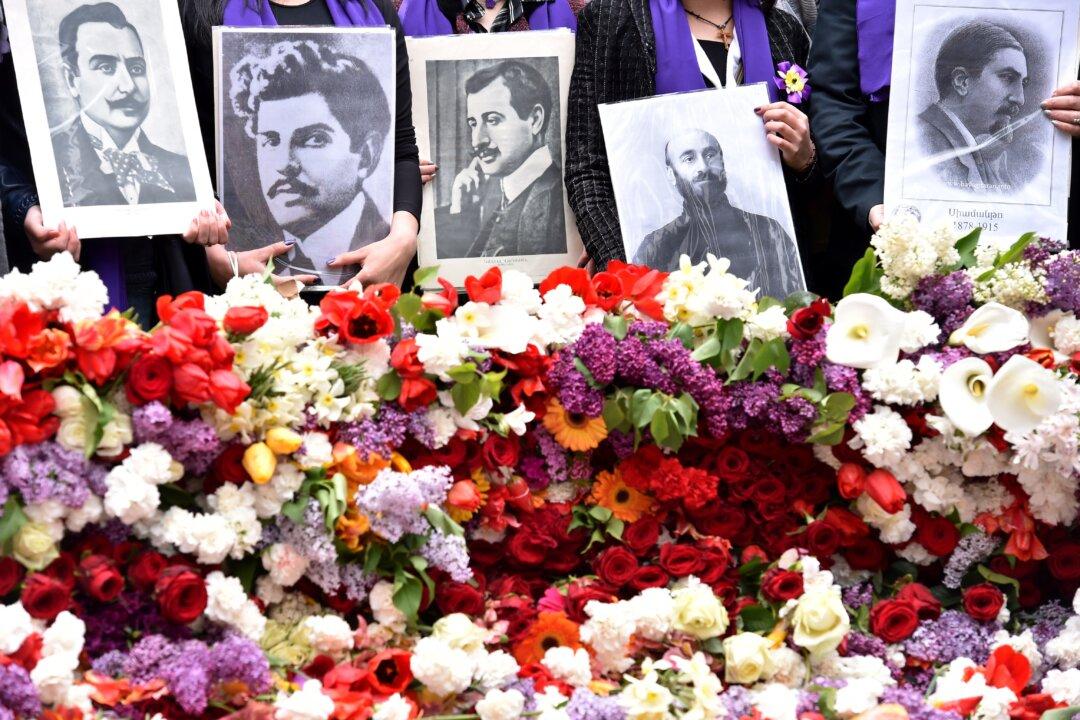When I was a child and my parents wanted to convince me to eat my vegetables, they would tell me to “remember the starving Armenians.” They would explain that when they were children and were asked to clean their plates, this is what their parents had told them.
I had otherwise never heard of the “starving Armenians,” and the injunction to remember them eventually became a little joke in our household.
Not until much later did I learn that there had been starving Armenians, and what had happened to them was no joke.
On April 24 100 years ago, hundreds of Armenia’s political, religious, and intellectual leaders were rounded up in Istanbul and then deported to Turkey’s interior, where they were executed.
This was the beginning of what is now recognized as the 20th century’s first genocide, although it occurred before the word had been invented. A lawyer named Raphael Lemkin used what was done to the Armenians as an example when he coined the word “genocide” in a 1944 book.





